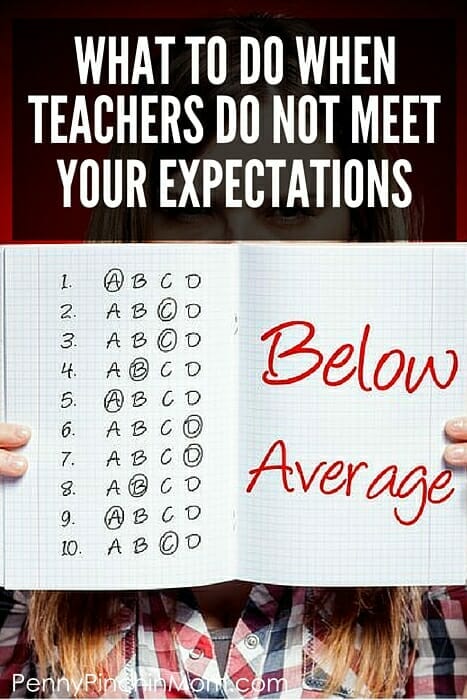Each year, when school starts, we go in with anticipation and excitement. We look forward to our children learning and excelling academically. Most teachers are amazing and help kids. But not all of them. Some appear that they should not be teaching. To be quite frank – they suck.
As a parent, it is in the moment of this realization when you feel helpless. The worry sets in and you are increasingly concerned about your child’s well being and his or her education. Is there anything you can do? Or, do you just have to grin and bear and it hope for the best?
Of course, it is never a good idea to just go at your teacher and tell him or her what you think. That helps absolutely no one. Most of all – your child. Don’t do that. Instead, be the good parent. Don’t be “that parent.”
So what do you do? Believe it or not there is a “chain of command” you should follow when you have a minor issue with a classroom teacher. Doing so will make it better for all involved. Following that chain can make solving those issues SO much easier for all parties involved.
Not only am I the mother to some wonderful children, I am also a former teacher. I have been through almost every imaginable scenario a teacher could be placed in. I thought for sure I would never have to deal with complete disappointment in an educator since I knew how to “play the game” from the other side. However, I have never been in a more awkward position then when I had to deal with a teacher that was NOT meeting my expectations as a parent a year or so ago. I played it cool and went through the chain of command. Unfortunately, my issue had to move on to the building principal.
She was very welcoming and glad to hear my perspective. If I had started complaining to her first before speaking to the teacher, she might not have been as open to hearing my concerns. As a principal, it is her job to be an advocate for her teachers, just as it’s my job to be an advocate for my child. When she asked me if I had discussed this issue with my child’s teacher, I had plenty of evidence to prove that this issue was not being resolved. This alone led to some very important yet hard to have conversations with both the teacher and the principal.
This entire process made me think, do other parents (who aren’t educators or involved with schools) know what to do when they aren’t satisfied with their teacher? Or what to do when you have a general concern about the classroom? Your gut instinct may be to immediately call or email the principal or school board, but those are actually the last things you should do for general concerns.
There is a process you should follow, to make sure you not only cover your bases, but you go about it in a fair and calm manner. This matters in case your issue goes from a general concern to one that needs more attention. Most teachers are there for your kids. Most teachers have your kids best interest at heart. And most teachers, when presented with information rationally, are very willing and open to listen to your concerns.
Of course every situation has different circumstances, but if you are just generally displeased with a teacher or classroom actions, here are a few steps you should follow:
1. Talk to the teacher. Take time to either shoot an email or make a phone call to discuss your concerns WITH the teacher before anyone else.
If you choose to call, I always suggest following up with an email. For several reasons, but mainly to have a “paper trail” acknowledging your discussion. It could be as simple as, “Dear Mrs. Jones, thank you for taking the time to discuss the math homework with me today. I look forward to learning more how we can best meet my child’s needs.”
2. Visit with the principal. If problems continue, once you have made numerous attempts to speak to the teacher, it is time to get the building principal involved. This is where having a paper trail of your communication with the teacher comes in handy. It shows the principal that you have tried, and you just aren’t getting anywhere.
3. Take it to the superintendent. If the issue is still not resolved, then this is a problem. And more than likely, a much bigger issue is at hand than just a disagreement over math homework or a difference in personalities. There are times when a superintendent needs to be aware and involved. Don’t be afraid to be a squeaky wheel.
Remember, especially when your kids are little, YOU are your child’s best and sometimes only advocate. Don’t be afraid to speak up. Just try and remain calm and present yourself in a respectful manner. After all, you are also your child’s #1 role model.
What questions do you have as parents about education? Are there other education issues you wish you knew more about from a parent who used to be a teacher? Maybe I can offer a different perspective for you. Maybe, I can help!
